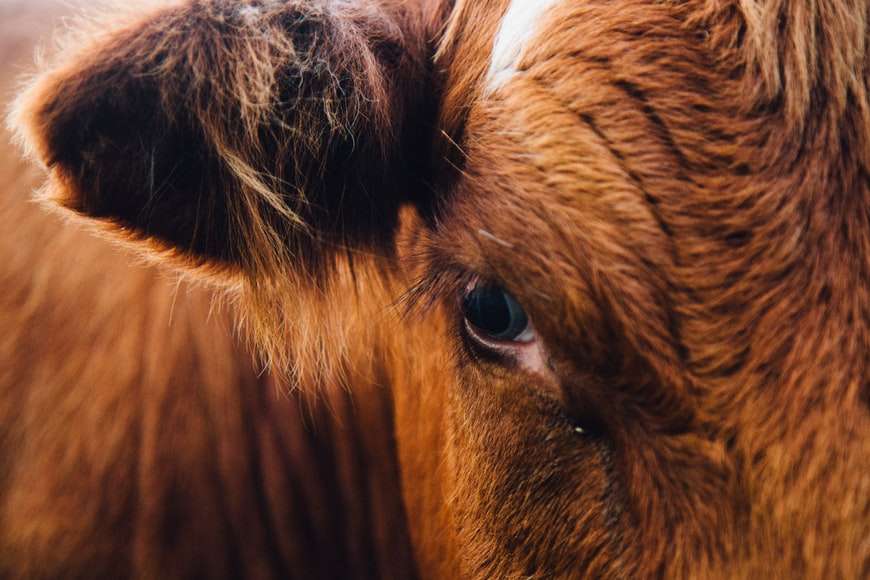Various livestock farmers and ranchers across the world have taken advantage of livestock insurance including cattle insurance in the past. Such unexpected events such as disease outbreaks, and natural calamities can be protected through it. By 2029, it is expected that the global market for livestock insurance will expand to 9.21 billion USD, registering a CAGR growth rate of over 6.5%.
This article features different livestock insurance, for instance, livestock mortality insurance, goat insurance, sheep insurance, and their costs.
Types of Livestock Insurance Coverage
Each type of livestock alongside its risks can obtain a specific insurance policy that can mitigate those risks. Below are some common types of livestock insurance coverage options one can obtain:
- Livestock Risk Protection Plan: This insurance plan facilitates protection against market drops in price which in turn assists farmers in controlling the market risk.
- Dairy Revenue Protection: This term is referred to the drops in revenue caused by the producers yield or dairy prices
- Weaned Calf Risk Protection: This term is classified as a new program in Colorado, Nebraska, South Dakota and Texas that protects cow-calf producers from revenue losses till the calves are weaned.
Livestock Mortality Insurance
Livestock mortality insurance is a more readily available form of insurance and is made use of in the event of the demise of insured animals due to malady or bad weather conditions.
Goat Insurance
It is important for goat farmers to be safeguarded against financial losses that might be incurred when a goat’s death takes place due to random occurrence.This Policy may require veterinary certificates and specific identification of the goats
Sheep And Other Farm Animal Insurance
There are also insurance policies targeting farm animals such as sheep,horses, rabbits, poultry and pigs. sheep, goats and other farm animals can be insured by sheep and goat insurance, against various risks such as livestock’s death due to bad weather such as wind and rainfall.
Such policies are aimed at ensuring that farmers’ livelihoods are secure should ever rely on such animals to meet their financial needs as farmers.
Livestock and Cattle Insurance Cost
The price of insuring livestock and cattle, livestock and cattle insurance depends on a number of factors which includes the location, level of coverage needed, among others. Premium coverage for livestock can range from a couple percent to a higher percentage of the animal’s estimated worth.
Cow Insurance Cost
For mortality cow insurance, it can be set around 4% but this can vary depending on the risk. The price of cow insurance will differ based on its value or coverage and risk factor.
Livestock Insurance Cost
The size of the farm, location, and amount of livestock all affect price alongside specific risks covered. Some regions have an increase in Croozage as insurance premium rate up to 4% but other areas have a fixed ratio.
Best Livestock Insurance Companies
Here’s a review of the best livestock insurance companies, including their, pros, cons, and ratings:
Nationwide Mutual
They have made a name for themselves in the market primarily due to their property, household, and pet insurance policies.
They also offer coverage plans for animals and livestock. If you are looking for an insurance company that can cater to all your needs, then Nationwide Mutual is your one-stop shop.
Pros:
- Nationwide Mutual brings forth an extensive portfolio of insurance products.
- They are sometimes praised for their exceptional customer service!
- There is increased flexibility in coverage for their clients.
Cons:
- If the applicant has a poor claims history, then in that case, the premiums will be substantially increased.
Rating:3.5/5
FBL Financial Group, Inc.
FBL is a parent company that manages several Farm Bureau Life Insurance Companies. Just as Nationwide Mutual, FBL also provides policies for livestock farmers, however, their main focus lies on life insurance as well as annuities.
Pros:
- They have branches all over the country due to which they have an extensive and dependable distribution network.
- FBL has earned quite the reputation due to their ethical business practices.
- Their selection of financial products is impeccable.
Cons:
- Apart from Farmers Bureau Life Insurance, FBL is largely uninvolved with livestock insurance.
- They primarily deal with life insurance and annuities.
Rating:4/5
ICICI Lombard General Insurance Company Limited
ICICI Lombard is considered one of the leading general insurance companies in India, providing numerous insurance services.
Indeed, although they are not specifically in the veterinary insurance sector, they have a general insurance cover which might be customized for farm requirements.
Pros:
- Outstand Services and Solid Claims Keyed in.
- Offers a wide array of insurance products with options.
- Has a good presence online to help manage policies.
Cons:
- They do not specifically cover livestock insurance.
- This business has a limited international footprint when compared to its competitors.
Rating: 4.5/5
HDFC ERGO General Insurance Company Limited
HDFC ERGO markets a wider range of insurance products such as cattle insurances, death during an accident, death from the old age disease with optional permanent disability cover can also be included.
Pros:
- Cater people in rural areas with specific cattle insurance coverages.
- Strikes out for life which covers natural disasters.
- Farmers with shirts worth trust placed in this product.
Cons:
- Geographical Limits on cover and types of cattle insured.
- May require a veterinary doctor to endorse for cover.
Rating: 4.2/5
AXA SA
As an international leader in insurance, AXA SA offers a wide range of livestock insurance packages. They deliver customized coverage for mortality, infertility, theft, and disease with the grade of private or commercial usage.
Pros:
– Extensive operations across the world with customized insurance packages.
– Risk consulting services for proper measuring managing of risks.
– Outstanding claims services with access to professionals specializing in biosecurity measures.
Cons
– Might be costly due to them being able to combine all the packages.
Overall Appraisal: 4.8/5








